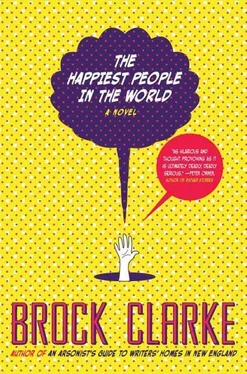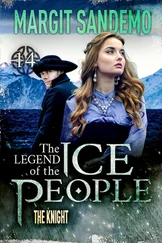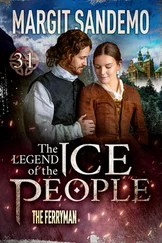“Why is this happening?” he asked his uncle Lawrence, and Uncle Lawrence told him. Uncle Lawrence told him every last thing he knew, which was a lot. It was a long story. By the end, Uncle Lawrence was gasping more than actually speaking. “What’s going to happen next?” Kurt asked him, and Uncle Lawrence told him that, too. “It is illegal for private citizens to buy, sell, or own firearms in Denmark, unless for the purposes of hunting or sport shooting, and only then on rare occasions, and with a hard-to-procure permit,” Uncle Lawrence said. It was like he was making a presentation in social studies or something. If there was anything more pathetic than an adult making a school presentation on his deathbed, then Kurt didn’t know what it was. “But just because it’s illegal to buy a gun doesn’t mean it’s impossible.”
Soon after that, Uncle Lawrence died. Several weeks after that, Kurt’s father was well enough to go home. By now, it was the second Sunday in November. Kurt got the woodstove going. He sat his father in the chair right by the stove, with a blanket over his lap. Kurt made his father a drink. They watched the late football game, mostly in silence. When it was over, Kurt turned off the TV and told his father that they were going to go find Henry. Jens. It didn’t really matter to Kurt what his real name was, as long as they found him and killed him for killing Kurt’s mom. Matty didn’t argue. The shooting had changed their relationship. Matty was forty-eight, and Kurt was sixteen, but they were already at the point in their lives where the son had become more capable than the father. “But where do you think he is?” Matty asked. “If you were him, where would you run?”
Here, Kurt thought. “Home,” he said. And a week later they were on a plane from JFK to Copenhagen.
Upon exiting the Copenhagen Airport, the first thing Matty asked Kurt was, “So where can we get a gun?” Matty had never owned, held, or fired a gun, let alone bought one, let alone bought one in another country. Except for Canada, which everyone knew didn’t count, Matty had never even been to another country before now. Neither had Kurt. But Matty knew that Kurt had done his homework, meaning that he’d probably just looked it up on the Internet before they’d left home.
“It is illegal for private citizens to buy, sell, or own firearms in Denmark, unless for the purposes of hunting or sport shooting, and only then on rare occasions, and with a hard-to-procure permit,” Kurt began. It was like he was making a presentation in social studies or something. Oh, buddy, I love you so much, Matty thought. If there was something more guaranteed to make a parent love their child than watching that child make a presentation at school, then Matty didn’t know what it was. “But just because it’s illegal to buy a gun doesn’t mean it’s impossible. According to my research, the best place to buy a gun in Copenhagen is Nørrebro.” They took the train to Nørreport Station, then walked across one of the bridges that spanned one of the five lakes, about which Matty wanted to say, Wow, look at all the pretty lakes. Except that the lakes were really ponds and most of them were so choked with algae and who knows what else that even the swans were swimming with care, trying not to drink, eat, or even touch anything that might make them throw up later on.
Anyway, Matty and Kurt walked across Dronning Louises Bro and onto Nørrebrogade. Kurt knew where they were supposed to be going, so Kurt was in charge of the map, so Matty was able to look around. As far as he could see, Copenhagen was gloomy and beautiful. It was a very northern kind of beauty. Once in a while a shaft of sunlight would break free of the black clouds, and when it did, you could really appreciate how dark and gloomy everything was. They were walking through a neighborhood of churches. The churches looked prosperous but sooty. This is not to say they were dirty. Matty was pretty sure they’d been made to look that way. Even the stained-glass windows were black in the sun. If you didn’t find that kind of thing beautiful, then you might as well get out of Copenhagen. Matty thought it was the most beautiful place he’d ever been to. But then again, he’d only been to a few places, and regardless, he and Kurt were getting out of Copenhagen, just as soon as they managed to buy a gun.
“Dad,” Kurt said, yelled actually. He was a block ahead. He flapped and then folded the map, then gave his father a look that said, Come on, old man, this gun isn’t going to buy itself. Matty had two questions: Who is responsible for turning my sixteen-year-old son from Broomeville, New York, into someone who knows how, and can’t wait, to buy a gun in Copenhagen? And, Are we really going to do this? But the first was only a rhetorical question. And it was too late to ask the second. He ran to catch up to his son, and then they continued north, north, toward Nørrebro.
Who do you buy your pot from?” Matty asked. They were in the heart of Nørrebro now. Or what Matty assumed was the heart. It was crowded, at least. On their right was an endless stretch of somewhat shabby three-story apartment buildings that at some point had been painted pink and yellow but now had gone mostly to grime. The buildings’ first floors were storefronts that still had their metal curtains pulled down. On Matty and Kurt’s left were card table after card table loaded with cassette tapes, CDs, books that had probably been lifted from a library, pipes you could smoke tobacco and drugs out of, pipes that were intended to make water flow in and out of your kitchen sink, kitchen appliances and utensils of all kinds. There was one table that featured only ceiling fans, a half-dozen ceiling fans, all of them with the wires sticking out. But mostly the tables were laden with blue jeans. Piles and piles of blue jeans, piles so tall that you wouldn’t be able to riffle through them to find your size without causing a huge mess. Where did all these blue jeans come from? Matty wondered. And who bought them? None of the people selling them were wearing jeans; they were wearing dashikis. That’s what Matty thought they were called, at least. And very few of the potential customers were wearing the jeans, either; they were mostly wearing dashikis, too. The only people wearing jeans were Matty and Kurt and most of the people riding their bikes and ringing their little bells as they streamed past in the bike lane. The bikers never yelled. If someone even looked like they might cross their path, the bikers just gently went ding, ding. And people actually got out of their way! It was incredible. The bike lane separated the tables and the street proper. Behind the tables was a ten-foot-high yellow wall, and the wall was periodically interrupted by enormous wrought-iron gates. Matty could see through the gates that on the other side of the wall was a cemetery. Matty wondered aloud what is was called and whether it was known for anything.
“Assistens,” Kurt said. “Søren Kierkegaard and Hans Christian Andersen are buried there.” But mostly Matty and Kurt didn’t talk. Mostly they just walked slowly by the tables. To Matty it felt like they were window-shopping for a gun, which Matty guessed would not be on display, and in any case there were no windows. Kurt was saying the same word over and over again, under his breath, so that only the vendors, or whatever you called them, could hear. The vendors all looked, more or less, from Matty’s point of view, like the stranger who’d ended up not being Jens Baedrup — most of them had dark beards, some of them were sleepy-eyed, all of them had dark skin, or at least skin that was darker than Matty’s or Kurt’s — and so far none of them had responded to the word Kurt was saying, although several of them raised their eyebrows and screwed up their faces, the universal sign for, Sorry, what? Matty couldn’t quite understand the word; it was probably some Danish buyer’s code for guns. Kurt had probably learned that from the Internet, too. Or maybe he learned it when he’d learned the American buyer’s code for pot. “Who do you buy your pot from?”
Читать дальше












